Google Rating
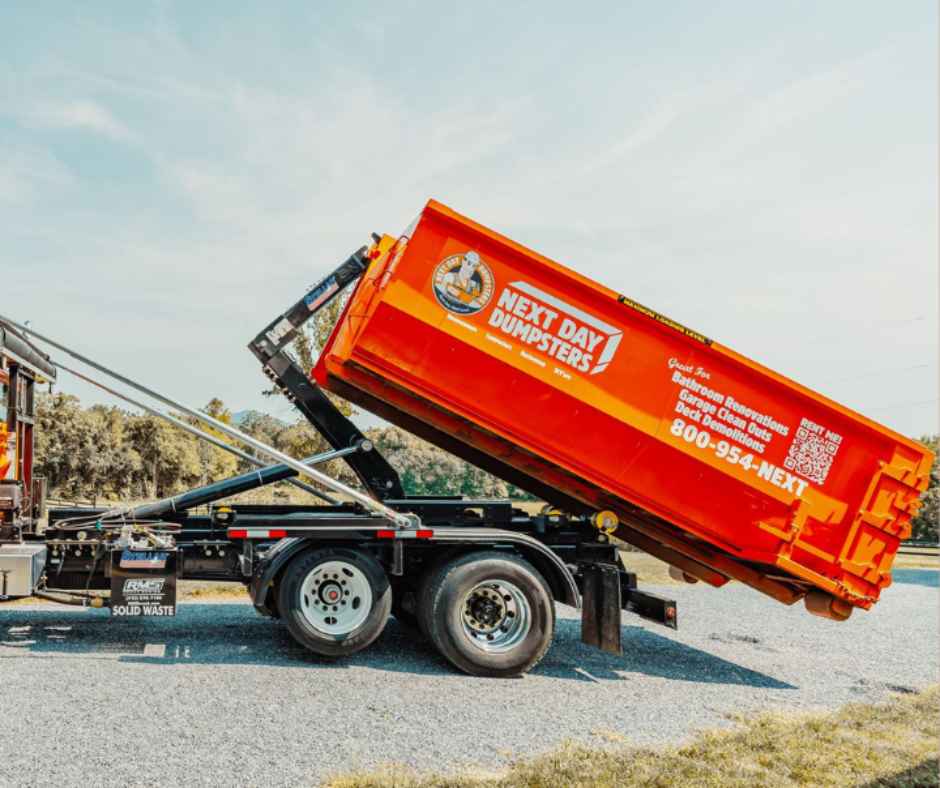
Dumpster Rental for Roofing Projects: What You Need to Know
Roofing projects, whether residential or commercial, generate a significant amount of waste. From old shingles and underlayment to nails and wood scraps, disposing of debris efficiently is crucial to keeping the worksite clean and safe. A dumpster rental is the best way to manage roofing waste, allowing you to remove materials quickly without cluttering the property.
If you’re planning a roofing job, here’s what you need to know about choosing the right roll off dumpster rental, preparing for delivery, and ensuring smooth waste disposal throughout your project.
Why You Need a Dumpster for Roofing Projects
A roofing job, whether it’s a small repair or a full replacement, creates a large volume of debris. Disposing of it in a standard trash bin or hauling it to a landfill yourself can be time-consuming and inefficient. Here’s why a roll off dumpster is the best solution:
- Convenience: Have a designated place to toss debris immediately, keeping the site organized.
- Safety: Prevent hazards from scattered nails, shingles, and wood scraps.
- Efficiency: Avoid multiple trips to a landfill and focus on the job.
- Cost Savings: Renting a dumpster is often more affordable than other waste disposal methods.
A dumpster rental service streamlines roofing waste removal so contractors and homeowners can complete the job faster and more effectively.
Choosing the Right Dumpster Size for a Roofing Project
Selecting the correct roll off dumpster rental size depends on the scale of your roofing project and the materials being removed.
Dumpster Size Recommendations for Roofing Jobs
- 15-yard dumpster – Best for small roofing repairs or a single-layer shingle removal
- 20-yard dumpster – Suitable for medium-sized residential roofing projects
- 30-yard dumpster – Ideal for larger homes or multi-layer roofing tear-offs
If you’re unsure which size is right for your project, consult your roll off dumpster rental service for expert guidance.
Preparing for Dumpster Delivery
Once you’ve selected the right dumpster rental, it’s important to prepare your site to ensure smooth drop-off and usage.
1. Select a Placement Area
- Choose a location with stable, flat ground, preferably a driveway or designated construction zone.
- Ensure easy access for the delivery truck, with at least 60 feet of clearance.
- Avoid areas with low-hanging power lines, trees, or other obstructions that could interfere with placement.
2. Protect the Surface
- If placing the dumpster on a driveway, use plywood sheets underneath to prevent damage to the pavement.
- Ensure the ground is dry and firm, especially in areas prone to sinking or shifting.
3. Obtain Any Necessary Permits
- If the roll off dumpster rental near me needs to be placed on a public street, check with local authorities for permit requirements.
- Secure all necessary approvals before delivery to avoid fines or delays.
Best Practices for Roofing Waste Disposal
To maximize efficiency and ensure safe disposal of materials, follow these best practices when using your roll off dumpster for a roofing project.
1. Load Heavy Materials First
Place shingles, tiles, and heavier debris at the bottom to create a stable base.
Evenly distribute weight to prevent overloading on one side.
2. Avoid Overfilling
Roofing debris is heavy, and exceeding the weight limit may result in additional fees.
Stop loading when debris reaches the top of the dumpster walls to comply with transport regulations.
3. Separate Hazardous Materials
Most dumpster rental services prohibit hazardous waste, including asbestos-laden roofing materials.
If your roof contains hazardous materials, consult a specialist for safe disposal.
4. Recycle Where Possible
Many roofing materials, such as metal and certain asphalt shingles, can be recycled.
If interested in eco-friendly disposal, ask your roll off dumpster rental service about recycling options.
Common Roofing Materials and Their Disposal Considerations
Different roofing materials have varying disposal requirements. Here’s what you need to know:
- Asphalt Shingles – The most common roofing material; can often be recycled if disposed of properly.
- Metal Roofing – Highly recyclable and should be separated from other waste.
- Wood Shingles – May be accepted in green waste recycling programs, depending on local regulations.
- Tile or Slate Roofing – Heavy materials that require careful placement in a roll off dumpster to avoid exceeding weight limits.
- Roofing Paper and Underlayment – Can typically be tossed into a dumpster rental with other debris.
Consult your dumpster rental professional at Next Day Dumpsters for any material-specific guidelines before disposal.
How Long Do You Need a Dumpster for a Roofing Project?
The rental period for a roll off dumpster rental depends on the project size and duration. Standard rental periods range from a few days to a week, but many providers offer flexible options.
- Small residential projects – A 3-5 day rental is typically sufficient.
- Medium to large projects – May require a full week or more.
- Commercial roofing projects – Often need extended rental periods, depending on project scope.
Make Your Roofing Project Easier with Next Day Dumpsters
Managing roofing debris doesn’t have to be complicated. With a reliable roll off dumpster rental near me, you can keep your worksite safe, organized, and efficient.
Next Day Dumpsters provides high-quality dumpster rental service for roofing projects of all sizes. Whether you’re replacing a small section of shingles or tackling a full commercial roof replacement, we have the right roll off dumpster for your needs.
Contact Next Day Dumpsters today to schedule your dumpster rental and make roofing waste removal easy!
Recent News
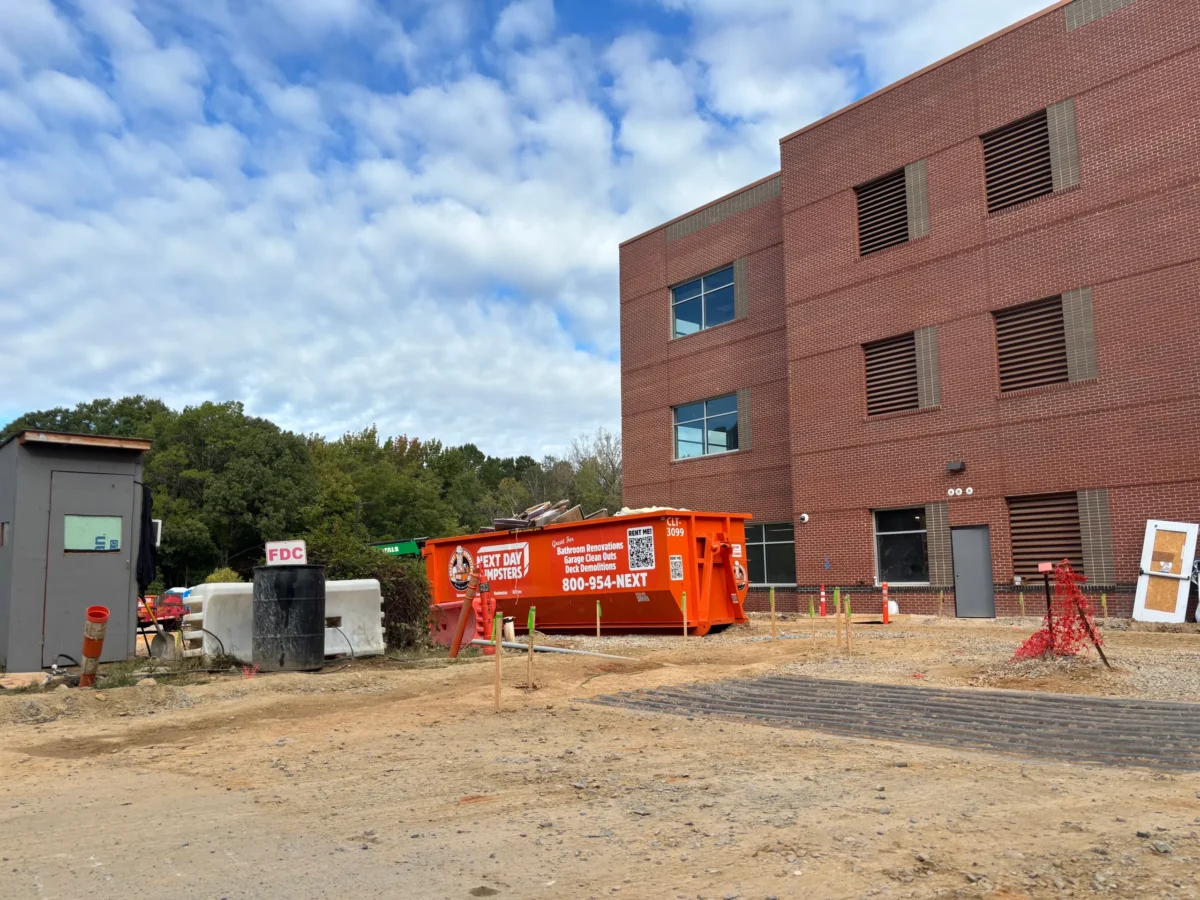
How to Make Your Construction Site Safer With a Dumpster Rental
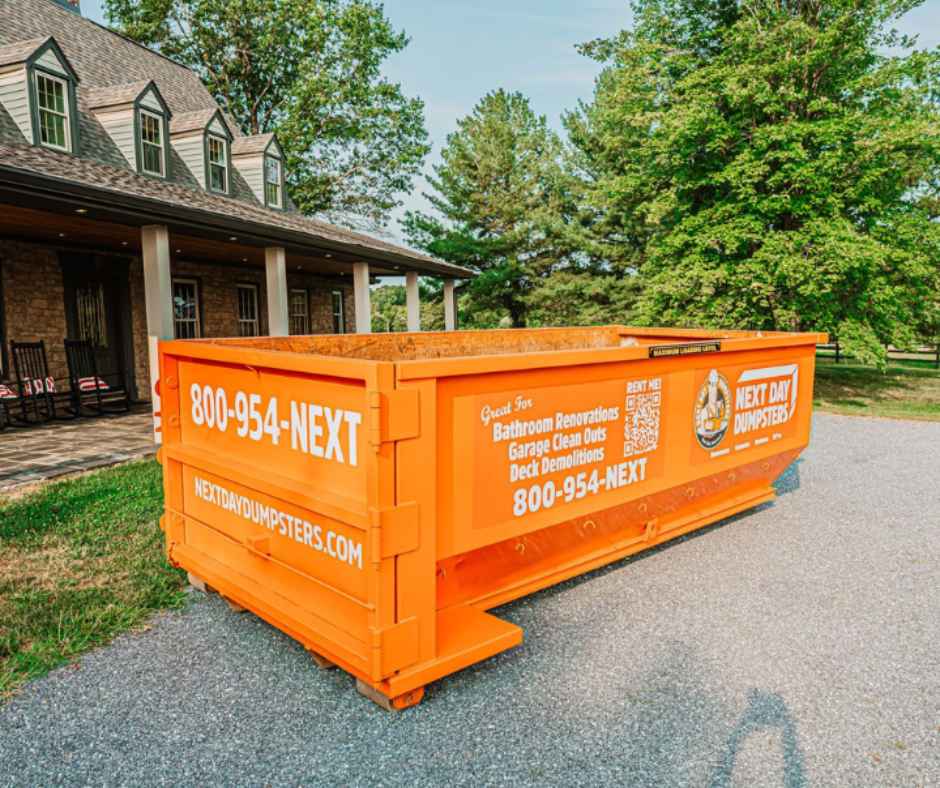
Do I Need a Dumpster Permit in Washington, D.C.?
Raleigh Dumpster Permit Requirements
Charlotte Dumpster Permit Requirements
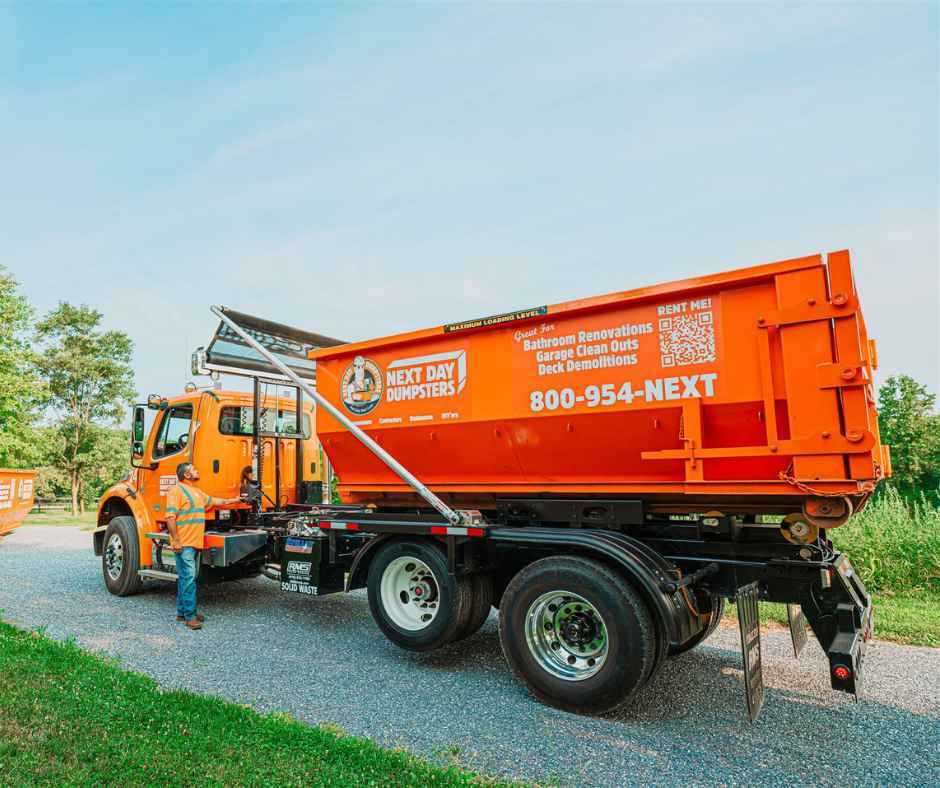
Dumpster Rentals for Remodels: 5 Common Mistakes Homeowners Make (and How to Avoid Them)
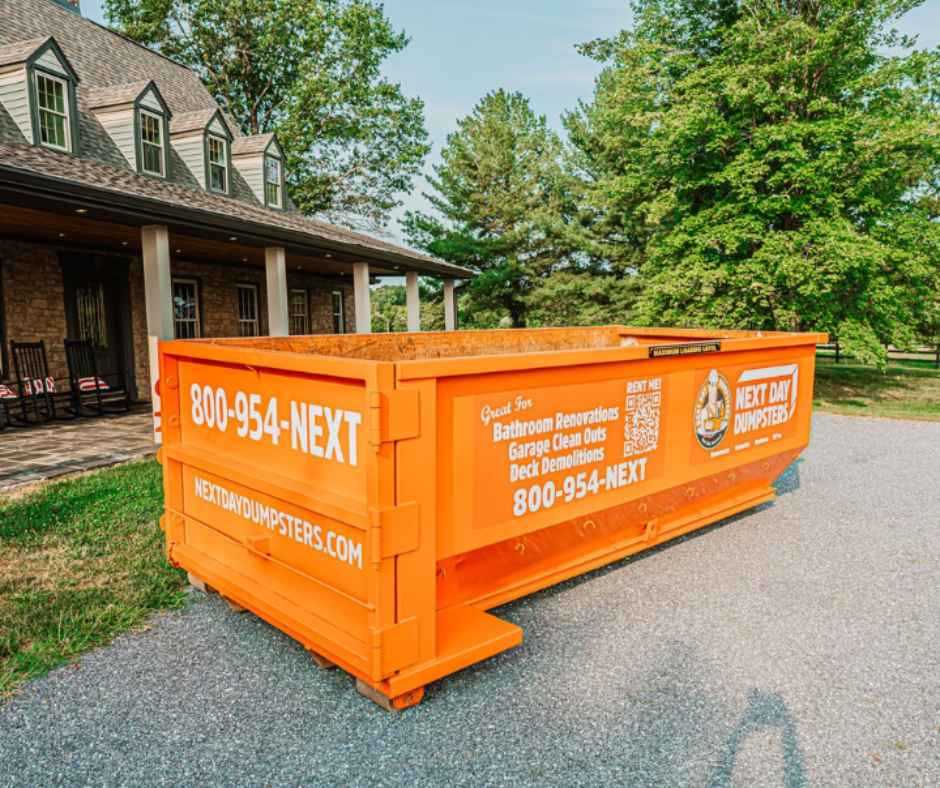
Snow, Ice & Dumpsters: Tips for Safe Placement and Pickup in Winter Conditions


